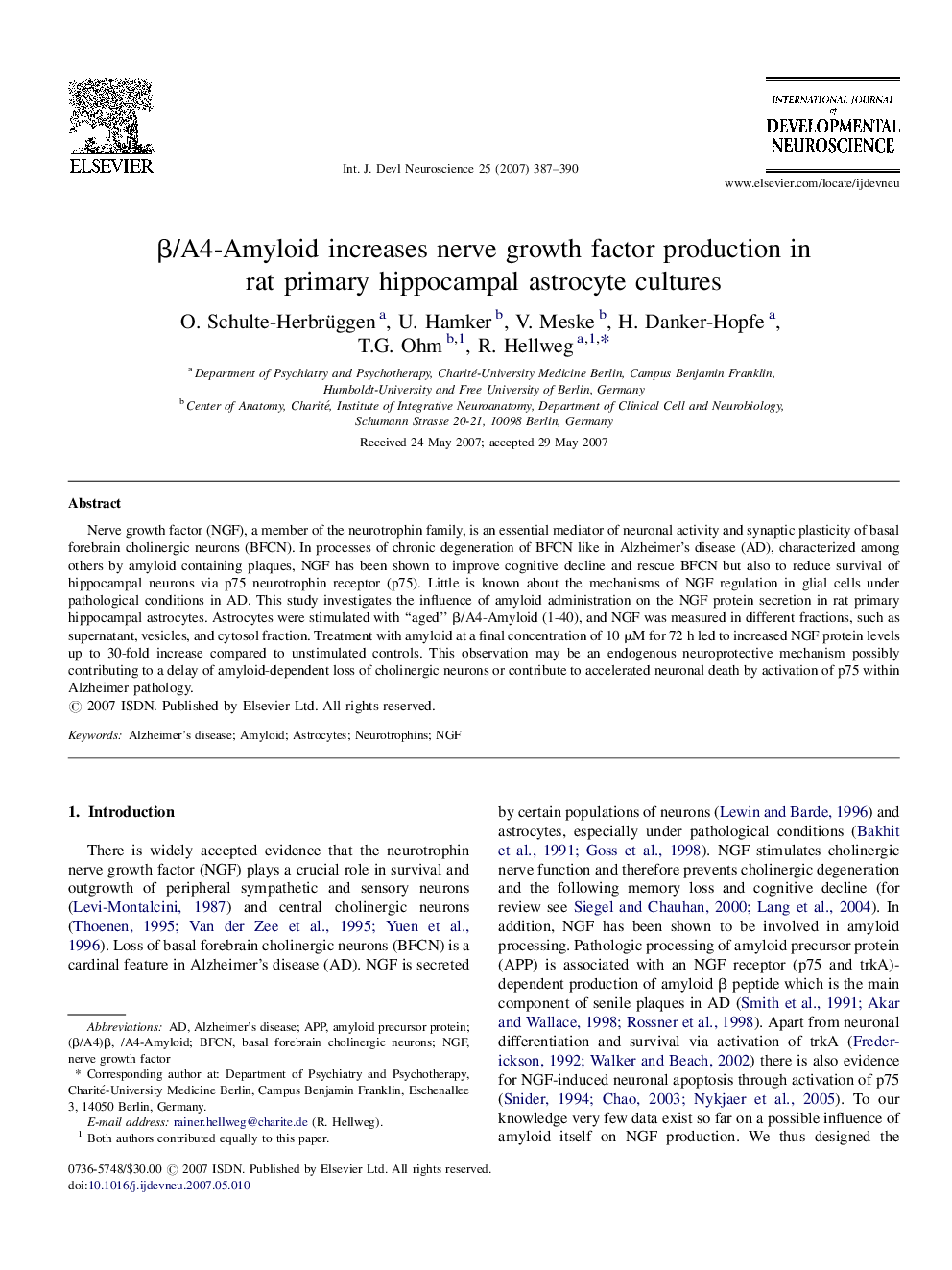| Article ID | Journal | Published Year | Pages | File Type |
|---|---|---|---|---|
| 2786664 | International Journal of Developmental Neuroscience | 2007 | 4 Pages |
Abstract
Nerve growth factor (NGF), a member of the neurotrophin family, is an essential mediator of neuronal activity and synaptic plasticity of basal forebrain cholinergic neurons (BFCN). In processes of chronic degeneration of BFCN like in Alzheimer's disease (AD), characterized among others by amyloid containing plaques, NGF has been shown to improve cognitive decline and rescue BFCN but also to reduce survival of hippocampal neurons via p75 neurotrophin receptor (p75). Little is known about the mechanisms of NGF regulation in glial cells under pathological conditions in AD. This study investigates the influence of amyloid administration on the NGF protein secretion in rat primary hippocampal astrocytes. Astrocytes were stimulated with “aged” β/A4-Amyloid (1-40), and NGF was measured in different fractions, such as supernatant, vesicles, and cytosol fraction. Treatment with amyloid at a final concentration of 10 μM for 72 h led to increased NGF protein levels up to 30-fold increase compared to unstimulated controls. This observation may be an endogenous neuroprotective mechanism possibly contributing to a delay of amyloid-dependent loss of cholinergic neurons or contribute to accelerated neuronal death by activation of p75 within Alzheimer pathology.
Related Topics
Life Sciences
Biochemistry, Genetics and Molecular Biology
Developmental Biology
Authors
O. Schulte-Herbrüggen, U. Hamker, V. Meske, H. Danker-Hopfe, T.G. Ohm, R. Hellweg,
